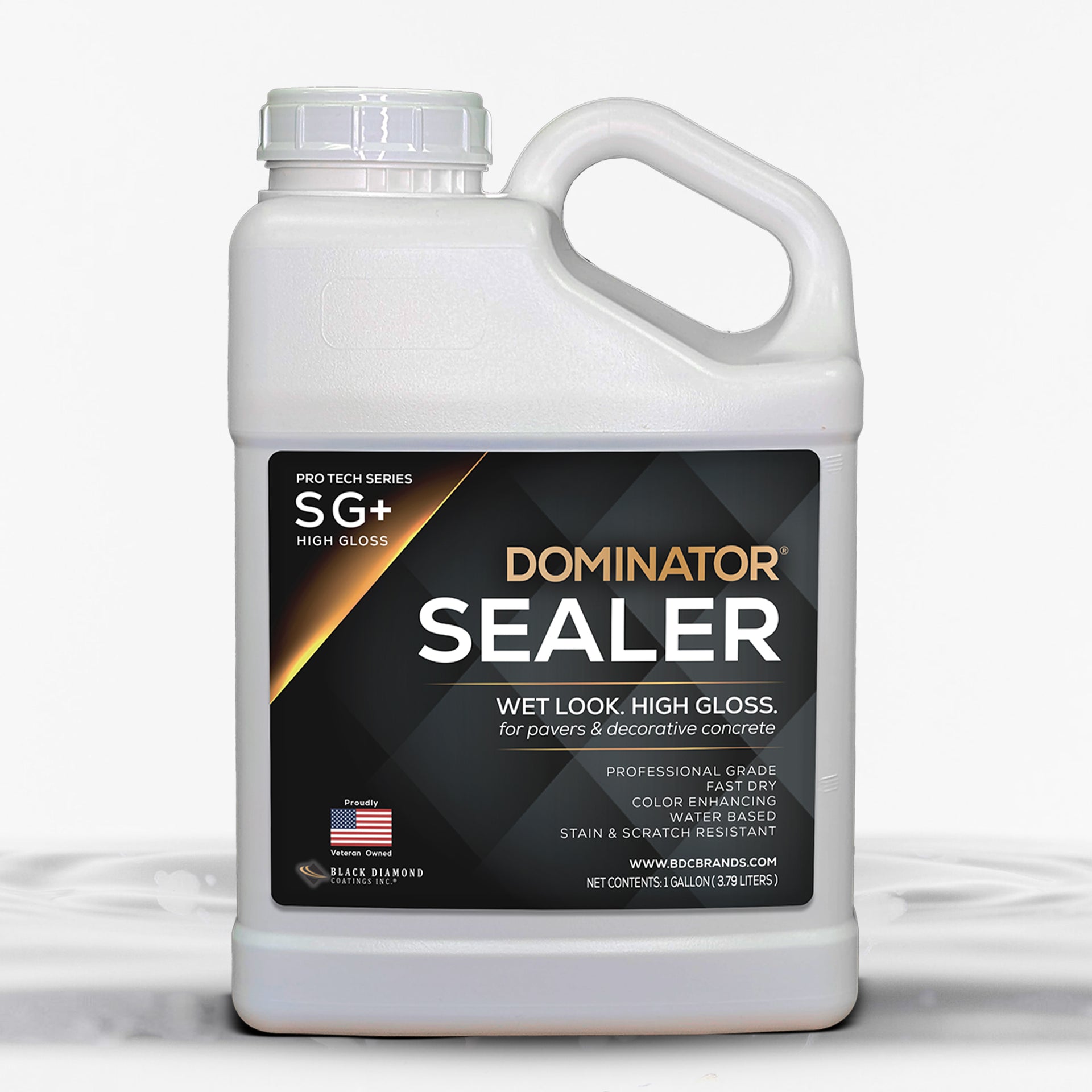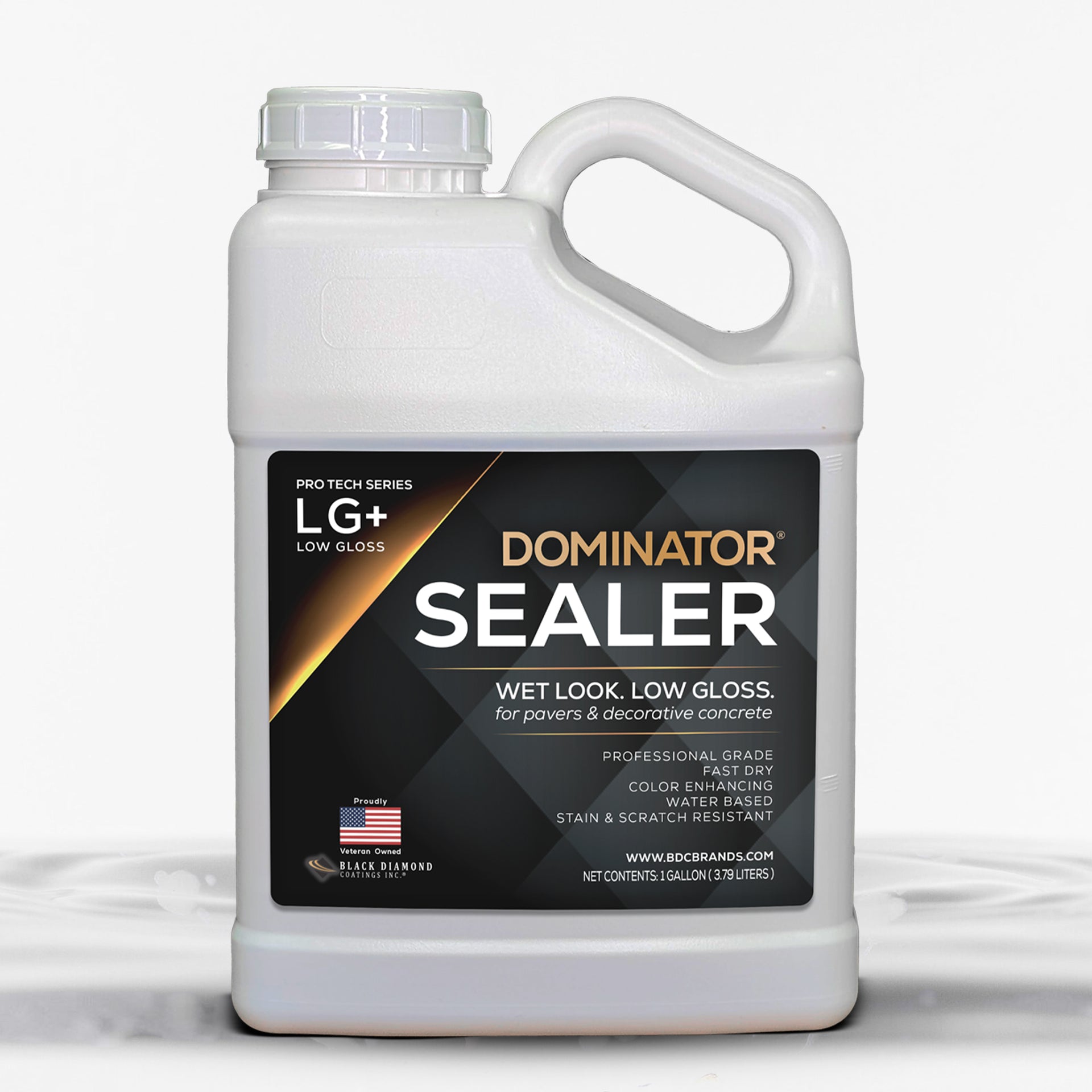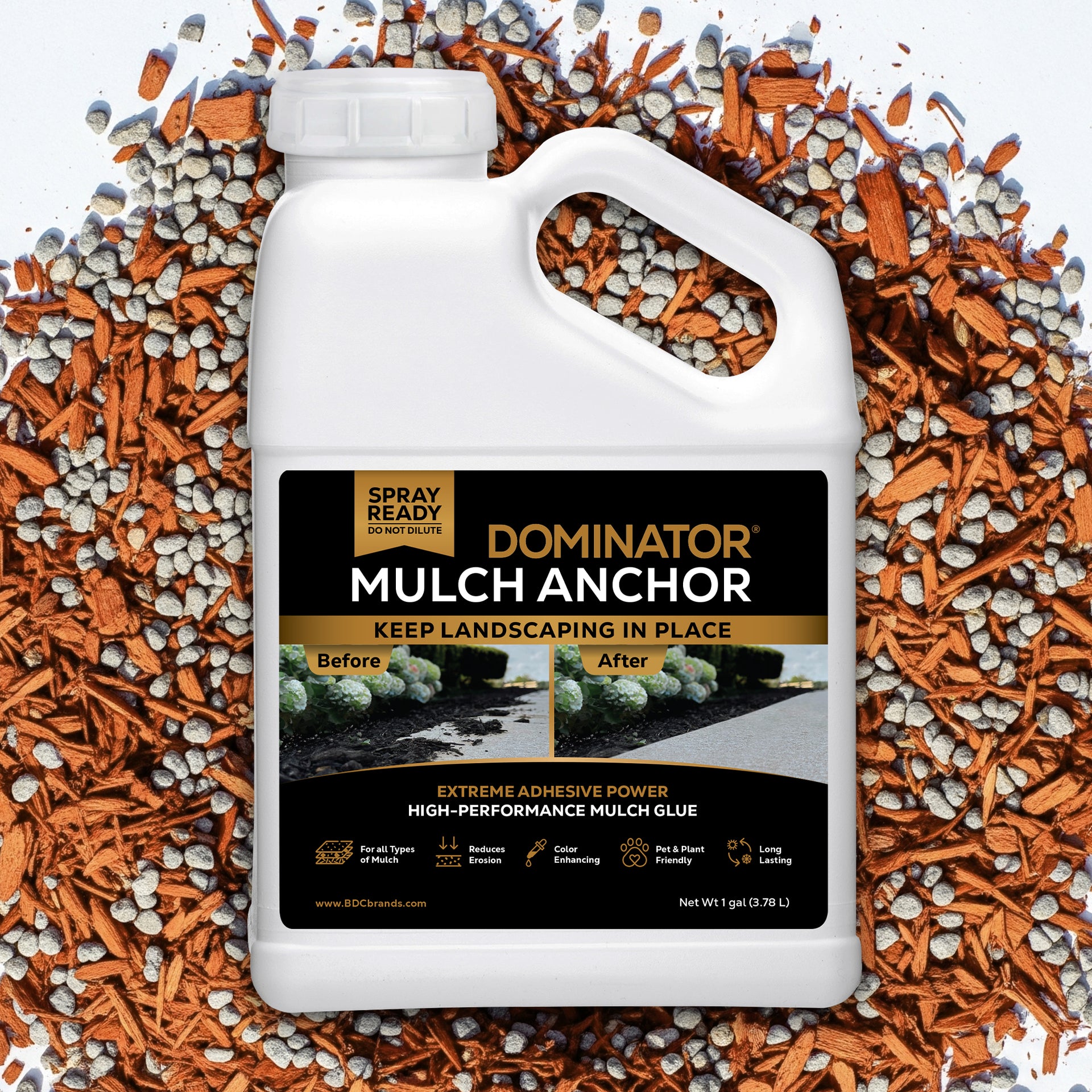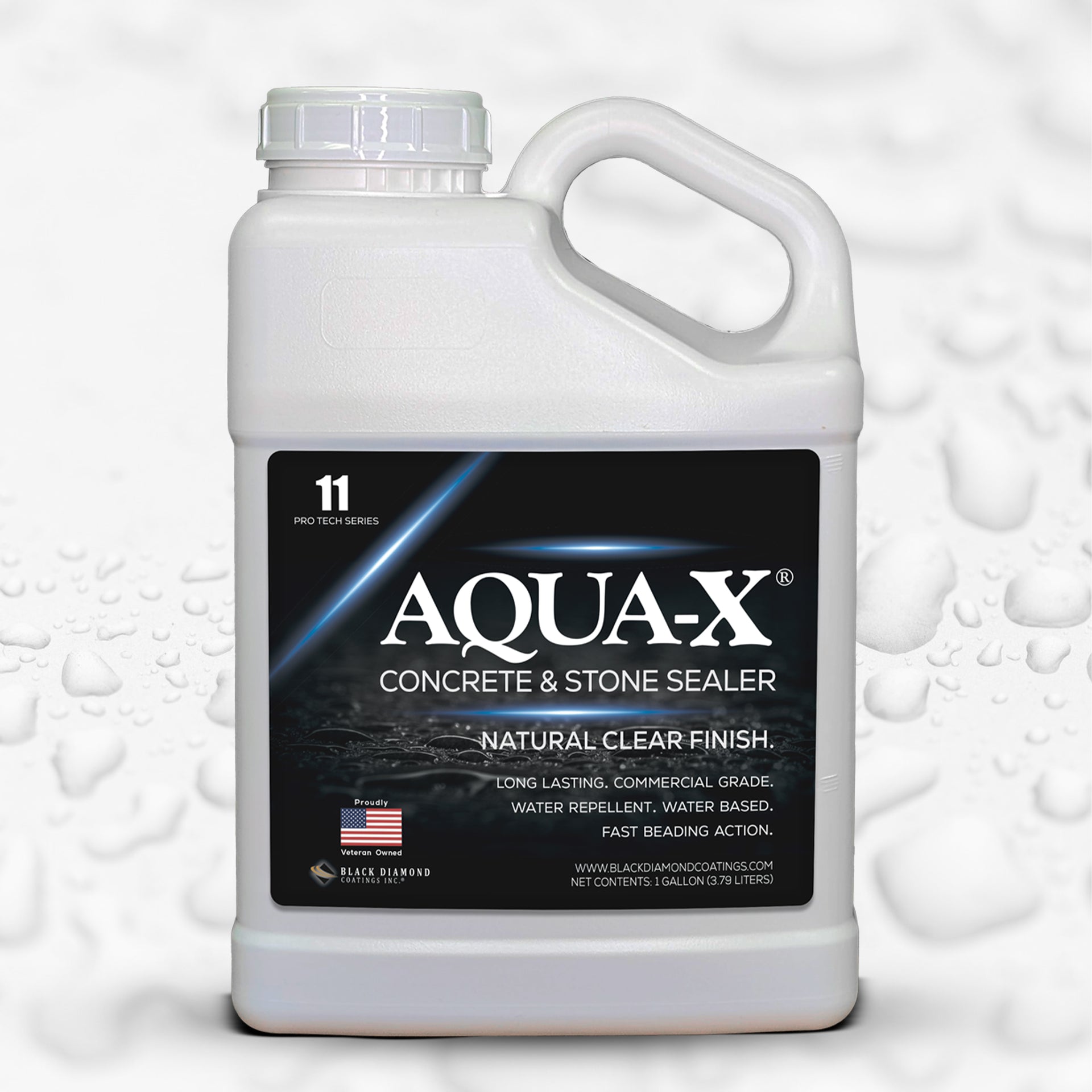What is the goal of any business? Is it to be profitable? To have steady and increasing business? To earn repeat business? It’s all of the above in our book. We were previously in the sealing service business for ten years, sealing over 4 million square feet of hardscape surfaces and earning an excellent reputation. All of this led us to the sealer manufacturing business as we continued to see the need for different and better sealers that met our customer needs. If you aren’t already in the sealing service business, we encourage you to consider it as a solid revenue stream – both on the initial application, and then on the cleaning and sealing maintenance.
In the last ten years, over 5.95 billion square feet of concrete pavers have been sold in the U.S. and Canada according to ICPI’s research. In the last five years alone, paver sales have grown by 28%. The sheer volume of pavers installed is fueling the need for maintenance of property owners’ investments. There is a growing demand in the market for sealing contractors. As property owners look to increase the value of their homes and commercial properties, pavers and stone surfaces are a means to improve the visual appeal. They are also a more forgiving surface with shifting substrates beneath the hardscape (e.g., freeze/thaw shifts, roots that shift the surface).
A LITTLE HISTORY
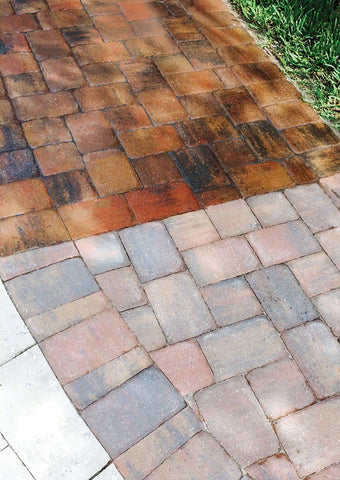 Paver sealing is still a relatively new concept, yet it has had a short history of challenges. The first sealers were solvent-based products, which gave good results when delivered under the perfect conditions. Water-based sealers were then introduced, making it easier to seal in a variety of conditions, but many of these products didn’t live up to their promises. With so many different sealer choices on the market to seal pavers, property owners and installers must know the ins and outs of proper sealing techniques and paver maintenance.
Paver sealing is still a relatively new concept, yet it has had a short history of challenges. The first sealers were solvent-based products, which gave good results when delivered under the perfect conditions. Water-based sealers were then introduced, making it easier to seal in a variety of conditions, but many of these products didn’t live up to their promises. With so many different sealer choices on the market to seal pavers, property owners and installers must know the ins and outs of proper sealing techniques and paver maintenance.
HOW OFTEN DO PAVERS NEED TO BE RESEALED?
The lifespan of the sealer will vary based on a number of factors, but is generally two to three years. Some factors that impact the life of the sealer include:
- Sealer type – High quality, commercial grade sealers will generally last longer.
- Proper application – Thorough surface preparation and application of the sealer has a large impact on the durability of the sealer.
- Climate – An increased exposure to water or sun can decrease the lifespan of the sealer.
- Traffic – Excessive traffic can decrease the lifespan of the sealer.
- Maintenance – Proper maintenance of the area can increase the lifespan of the sealer.
TO SEAL OR NOT TO SEAL
“When asked by a homeowner whether or not to seal their patio pavers my stock answer is ‘I would,’” says Alan Starling, CDC Central Region Sales Manager of Pavestone Company, a national paver manufacturer. “The use of a quality sealer helps protect my investment. I love to entertain outside, grilling and cooking on my patio, and sealers help reduce stains and keep things looking great. Same for the driveway, no one likes to see motor oil drips on their pavers. It’s much easier to clean than trying to replace stained pavers. Plus a sealer enhances the beauty of the project by keeping color intact.”
Sealing hardscapes is optional, much like waxing a car is optional, although recommended. Once most property owners have made the investment in a beautiful paver hardscape area, they’ll want to maintain it. Good quality sealers will prevent substances from penetrating the pavers, such as oil spills or tree sap, improving their visual aesthetics for years to come.
“Flagstone Pavers recommends using a commercial grade, high solid, water based sealer on all new and existing paver surfaces,” according to Russell Young, General Manager of Flagstone Pavers, a paver manufacturer in Florida. “These products are specifically designed to provide color enhancement and protect the surface from many types of stains such as oil, fertilizer, and tree sap or leaves. Customers typically install concrete pavers to compliment and highlight an outdoor remodeling project, so sealing keeps the project looking as good as the day it is installed.”
When pavers are sealed, the sealer fills the pores of the pavers making any dirt that comes in contact with the surface stay on the surface without penetrating the paver. This allows for a much easier level of maintenance to ensure a clean look. It is a common misconception of the property owner to think that once their pavers are sealed, that the pavers are now maintenance free. The surface still needs to have any spills or substances cleaned off the surface within a reasonable period of time or it could stain the sealer. One of the biggest benefits of using sealer is making it easy to hose off substances, in most cases, without the need for a pressure washer.
THE SEALING BUSINESS
There are a growing number of contractors that seal pavers. If you aren’t already one of them, then the question is, why would you want to add sealing to your services?
We know the risks of being a jack of all trades and a master of none, so here are some considerations. Cleaning and sealing pavers and other hardscapes is a perpetual business. It will need to be performed again, no matter what sealer is used.
For installers who typically have a one-time sale with a homeowner, offering a cleaning and sealing service provides an ongoing revenue stream, adding value and steady income. For landscapers who are already providing services to customers with existing pavers, cleaning and sealing becomes another valuable option to provide.
Bart Citro, owner of Weeki Wachee Stone Yard in Weeki Wachee, Florida, has operated a successful hardscape installation business since 2003, sealing 100% of their own installations. He says, “In today’s marketplace we compete with everyone. We are reminded that anyone can start a business and say they offer this or any service at a reduced price. However, we have built our business on the belief that it’s the true professional who continues to work on their craft, without cutting cost or corners, who will deliver a stunning product to the customer and realize success.”
“We decided to add cleaning and sealing to the list of services our business provides. This revenue stream can increase sales and profits to an already existing business or provide for a standalone business in this field. Our success has taught us that a hands-on service with no short cuts taken, will earn your business, value, respect and customers.”
SKILLS OF GOOD SEALING TECHNICIANS
If you’re thinking that sealing services might be a good addition to your business, you then need to examine to see if your existing staff has the necessary skills to perform the services. In our experience, the following skills are critical to sealing service contractors that have excellent reputations:
- Attention to detail: Preparation is equally as important as the sealing itself. The hardscape must be completely clean, ensuring any efflorescence is removed and existing stains are thoroughly cleaned and well rinsed. If pavers need to be re-sanded, ensure the proper sand level is achieved and sand is not on the hardscape surface. Tape or cover any surfaces that are not intended to be sealed. When sealing, ensure that only the surfaces to be sealed are in fact sealed. Test the surface with the selected sealer to ensure it works as expected, because every surface is different. Finally, ensure that cleanup is performed well.
- Appreciate the art: While cleaning pavers may be a bit more scientific, sealing is much more of an art. Sealing technicians must learn to apply appropriate amounts of sealer depending on the surface conditions. Previously sealed pavers need a different amount of sealer than “virgin” pavers. Hardscapes also have different porosities, requiring different amounts of sealer to properly seal the surface. For example, natural stone and pool copings are denser surfaces, requiring different sealers and/or amount of sealer to seal them than concrete pavers.
- Desire for referrals: Technicians should have a desire to do their best work every day. These are the individuals who develop smooth, even sealing techniques, regardless of the selected sealer product. They also work with their customers to choose the appropriate sealers/finishes for the job (e.g., shiny versus matte, grit necessary for the surface area). Finally, these technicians should help their customers know what to do to maintain their surfaces.
CHOOSING THE APPROPRIATE SEALERS TO OFFER
Knowledge is power. Do your research on all products you’re considering. What are the features and benefits? What are the limitations? Are there any considerations that would make you want to choose or avoid a product based on your weather conditions, property owner preferences, hardscape surface needs, and product value. Are there training opportunities by sealer manufacturers that can help you to properly apply products?
THE MAINTENANCE REVENUE STREAM
One of the most overlooked business opportunities is offering maintenance cleaning and sealing services. All hardscape surfaces need to be pressure washed on a periodic basis. By offering property owners maintenance packages, you secure repeat business if you perform high quality services at a valued price.
Many contractors offer cleaning maintenance on a quarterly, bi-annual or annual basis. During this cleaning, you can check to see if any sealer touch-ups are required. Then when it’s time for a full re-sealing application, your company should be guaranteed the business because of your continuing relationship with the property owner and the value you’ve been providing.
LAST THOUGHTS
Citro says he “believes the sealing business will continue to grow. This is partly due to the high numbers of pavers projects installed over the past ten years, the desire to retain and/or restore the pavers colorful appearance and to increase the longevity of the pavers. The demand for this service will continue to rise as paver installations continue to increase.”
Many hardscapes installers do not offer sealing as part of their services for a variety of reasons. Some have had bad experiences in the past, others are unfamiliar with the process or have not explored the opportunity. With the growing demand for quality sealer contractors today, there are a number of educational resources that are readily available. Most sealer manufacturers offer training programs that train and often certify applicators in the proper use and applications of their products. These courses can be invaluable to train your workforce, offering peace of mind that they have the right tools and training necessary to make sealer application a valuable part of your business.
Download the published article from The Hardscape Magazine.

